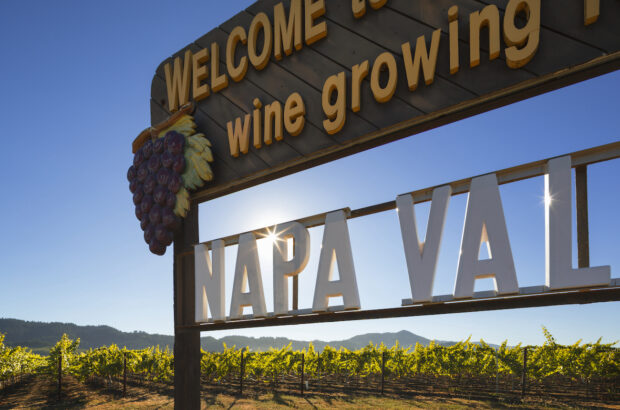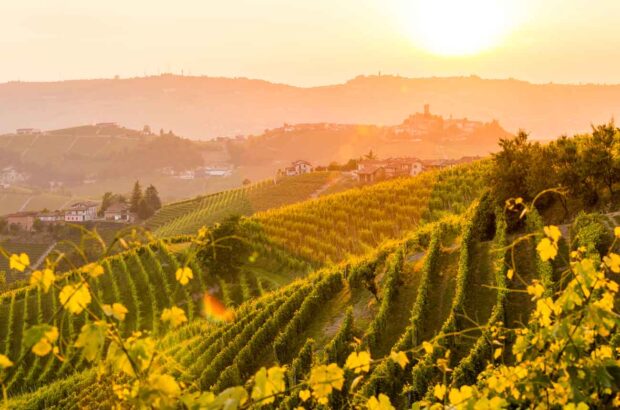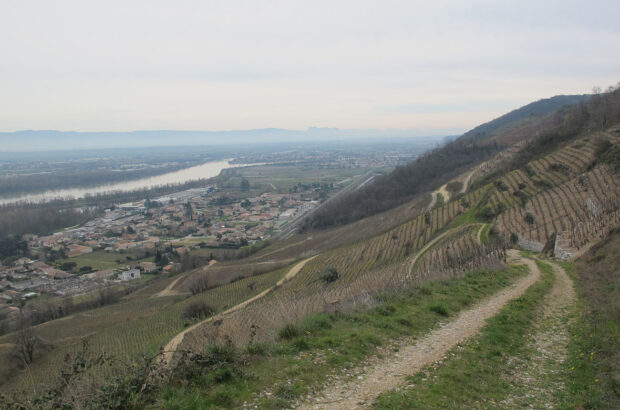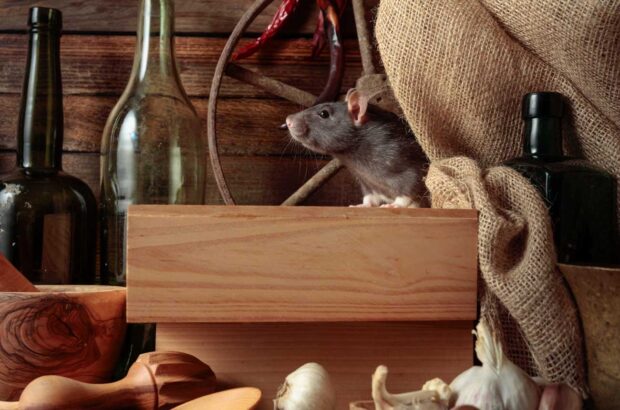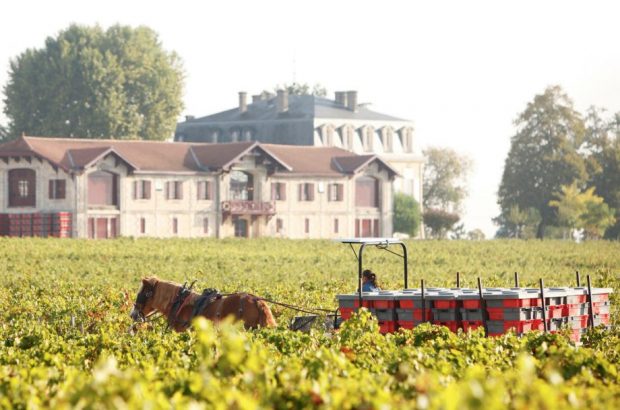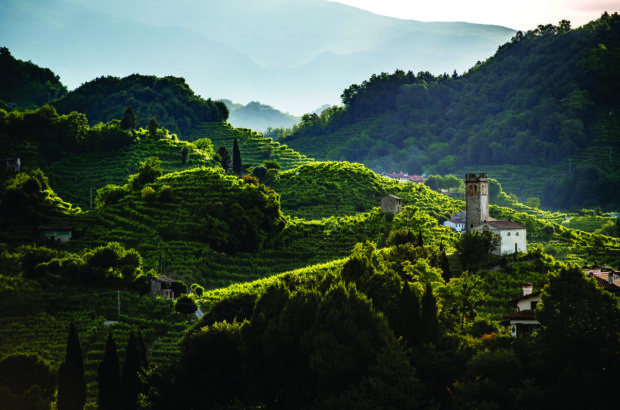Increased vineyard plantings and notable improvements in quality mean that the future looks bright for Pinot Noir in California. Read this report on 93 wines tasted by our three-strong expert panel, with an introduction by Karen MacNeil, who is region chair for California at the Decanter World Wine Awards 2018.
-
93 wines tasted with 2 rated Outstanding
-
The panel tasters were: Stephen Brook, James Doidge and Ronan Sayburn MS
Unlike Cabernet Sauvignon, which confines itself to small zones in northern California (notably Napa Valley, Santa Cruz Mountains and parts of Sonoma), Pinot Noir is grown over an 800km north-south stretch.
The specific AVAs (American Viticultural Areas) that excel with the grape are strung like pearls along the Pacific coastline. Latitude, as it turns out, isn’t very important when it comes to Californian Pinot Noir. What matters more is proximity to the cold Pacific Ocean. In summer, standing in most top Pinot vineyards feels like being in a restaurant’s walk-in refrigerator.
Pinot Noir is now the fourth most-planted grape in California, right behind Zinfandel, Cabernet Sauvignon and Chardonnay, the state’s most-planted grape. Just 20 years ago, Pinot was 10th in the line-up, far behind grapes such as Barbera and Chenin Blanc, which are increasingly absent on the contemporary scene.
Scroll down to see the top wines from this panel tasting – exclusively for Decanter Premium subscribers
{"content":"PHA+UGlub3TigJlzIHJpc2UgY2FuIGJlIGF0dHJpYnV0ZWQgdG8gc2V2ZXJhbCBmYWN0b3JzLCBpbmNsdWRpbmcgdGhlIGludHJvZHVjdGlvbiBvZiBuZXcgcGxhbnQgbWF0ZXJpYWwgaW4gdGhlIDE5OTBzIOKAkyB0aGUgRGlqb24gY2xvbmVzIOKAkyBhbmQgdGhlIHdpbmVzIG1hZGUgZnJvbSB0aG9zZSBjbG9uZXMuQnV0IGluIGEgdW5pcXVlbHkgQ2FsaWZvcm5pYW4gdHdpc3QsIEhvbGx5d29vZCBhbHNvIHBsYXllZCBhIHBhcnQuRm9sbG93aW5nIHRoZSAyMDA0IHJlbGVhc2Ugb2YgdGhlIEFjYWRlbXkgQXdhcmQtd2lubmluZyBmaWxtIDxhIGhyZWY9Imh0dHBzOi8vd3d3LmRlY2FudGVyLmNvbS93aW5lLW5ld3Mvc2lkZXdheXMtYS12ZXJ5LWZ1bm55LXdpbmUtZmlsbS05OTQ0My8iIHRhcmdldD0iX2JsYW5rIiByZWw9Im5vb3BlbmVyIj5TaWRld2F5czwvYT4gKGFib3V0IGEgZGV2b3RlZCBQaW5vdCBOb2lyIGZhbiksIFBpbm90IHNhbGVzIHN1cmdlZCAxOCUgaW4gbmluZSBtb250aHMgYWxvbmUuIEV2ZW4gdGhlIGdsYXNzd2FyZSBjb21wYW55IFJpZWRlbCByZXBvcnRlZCBzYWxlcyBpbmNyZWFzZXMgaW4gdGhlIFVTIHRoYW5rcyB0byBwdXJjaGFzZXMgb2YgdGhlIGZpcm3igJlzIFBpbm90IE5vaXIgZ2xhc3Nlcy48L3A+CjxwPjxkaXYgY2xhc3M9ImFkLWNvbnRhaW5lciBhZC1jb250YWluZXItLW1vYmlsZSI+PGRpdiBpZD0icG9zdC1pbmxpbmUtMiIgY2xhc3M9ImlwYy1hZHZlcnQiPjwvZGl2PjwvZGl2PjwvcD4KPGhyPgo8aDIgc3R5bGU9InRleHQtYWxpZ246IGNlbnRlcjsiPjxzdHJvbmc+UXVpY2sgbGluazogPGEgaHJlZj0iaHR0cHM6Ly93d3cuZGVjYW50ZXIuY29tL3dpbmUtcmV2aWV3cy9zZWFyY2g\/cXVlcnk9I2ZpbHRlciU1QnRhc3RpbmdfZm9ybWF0JTVEPTImYW1wO2ZpbHRlciU1QmdyYXBlJTVEPTMwNSZhbXA7ZmlsdGVyJTVCcmVnaW9uJTVEPTI3MyZhbXA7b3JkZXIlNUJ1cGRhdGVkX2F0JTVEPWRlc2MmYW1wO3BhZ2U9MSIgdGFyZ2V0PSJfYmxhbmsiIHJlbD0ibm9vcGVuZXIiPlZpZXcgYWxsIDkzIHdpbmVzIGZyb20gdGhpcyBwYW5lbCB0YXN0aW5nPC9hPjwvc3Ryb25nPjwvaDI+Cjxocj4KPGgyPlF1YWxpdHkgb24gdGhlIHJpc2U8L2gyPgo8cD5CeSBhbGwgYWNjb3VudHMsIHRoZSBxdWFsaXR5IG9mIENhbGlmb3JuaWEgUGlub3QgTm9pciBoYXMgYWxzbyBjbGltYmVkLiBNYW55IChpbmNsdWRpbmcgdGhpcyB3cml0ZXIpIGFyZ3VlIHRoYXQgdGhlIHF1YWxpdHkgaW5jcmVhc2UgaGFzIG91dHNob25lIHRoYXQgb2YgYW55IG90aGVyIHZhcmlldHkuPC9wPgo8cD5Ub2RheSwgbW9zdCBvZiB0aGUgdG9wIFBpbm90cyBhcmUgc21hbGwtbG90IHdpbmVzLCBiYXNlZCBvbiBtdWx0aXBsZSBjbG9uZXMgZ3Jvd24gYXQgbG93IHlpZWxkcy4gTW9zdCBwcm9kdWNlcnMgcmVmcmFpbiBmcm9tIGFkZGluZyB5ZWFzdCwgYW5kIHVzZSBvcGVuLXRvcCBmZXJtZW50ZXJzIHdoaWNoIGFyZSBwdW5jaGVkIGRvd24gYnkgaGFuZC4gTmV3IG9hayBoYXMgYmVlbiBvbiB0aGUgZGVjbGluZSBmb3Igc2V2ZXJhbCB5ZWFycywgd2l0aCB0b3AgcHJvZHVjZXJzIHVzaW5nIHdlbGwgdW5kZXIgNTAlLCBhbmQgbWFueSBhdmVyYWdpbmcgYXJvdW5kIDIwJS48L3A+CjxwPk5vdCBzdXJwcmlzaW5nbHksIFNvbm9tYSwgTW9udGVyZXkgYW5kIFNhbnRhIEJhcmJhcmEgbGVhZCBpbiB0ZXJtcyBvZiBwbGFudGVkIGFyZWEsIHdpdGggTmFwYSBhbmQgTWVuZG9jaW5vIG5vdCBmYXIgYmVoaW5kLiBXaXRoaW4gdGhlc2UgYXJlYXMsIFBpbm90IHZpbmV5YXJkcyBhcmUgYWx3YXlzIGNsdXN0ZXJlZCBpbiBvY2Vhbi1leHBvc2VkIGNvb2wgZW5jbGF2ZXMuPC9wPgo8ZGl2IGNsYXNzPSJhZC1jb250YWluZXIgYWQtY29udGFpbmVyLS1tb2JpbGUiPjxkaXYgaWQ9InBvc3QtaW5saW5lLTMiIGNsYXNzPSJpcGMtYWR2ZXJ0Ij48L2Rpdj48L2Rpdj4KPHA+VGhlcmUgaXMgdmVyeSBsaXR0bGUgUGlub3QgTm9pciBpbiBOYXBhIFZhbGxleSBvdXRzaWRlIG9mIENhcm5lcm9zIGZvciBleGFtcGxlLCBhbmQgdmVyeSBsaXR0bGUgaW4gTWVuZG9jaW5vIG91dHNpZGUgb2YgdGhlIEFuZGVyc29uIFZhbGxleS48L3A+CjxwPlN0eWxpc3RpY2FsbHksIHRoZSByZWdpb25zIGFyZSBkaWZmaWN1bHQgdG8gdGVsbCBhcGFydCAoYXQgbGVhc3QgaW4gYmxpbmQgdGFzdGluZ3MpLiBHZW5lcmFsIGNvbnNlbnN1cyBzYXlzIHRoYXQgQW5kZXJzb24gVmFsbGV5ICh0aGUgbW9zdCBub3J0aGVybiB0b3AgUGlub3QgQVZBKSBhbmQgU2FudGEgUml0YSBIaWxscyAodGhlIG1vc3Qgc291dGhlcm4pIHByb2R1Y2UgdGhlIGxpZ2h0ZXN0LCBtb3N0IGV0aGVyZWFsIGV4YW1wbGVzLjwvcD4KPGRpdiBjbGFzcz0iYWQtY29udGFpbmVyIGFkLWNvbnRhaW5lci0tbW9iaWxlIj48ZGl2IGlkPSJwb3N0LWlubGluZS00IiBjbGFzcz0iaXBjLWFkdmVydCI+PC9kaXY+PC9kaXY+CjxwPkJ1dCBJIGNhbiBpbW1lZGlhdGVseSB0aGluayBvZiAxMCBTb25vbWEgQ29hc3Qgd2luZXMgdGhhdCB3b3VsZCBmYWxsIGludG8gdGhpcyBjYXRlZ29yeSB0b28uIEFzIGlzIG9mdGVuIHRydWUgaW4gQ2FsaWZvcm5pYSwgdGhlIHByb2R1Y2Vy4oCZcyBwaGlsb3NvcGh5IGFuZCBoYW5kIGFyZSBpbXBvc3NpYmxlIHRvIGlnbm9yZS48L3A+Cjxocj4KPGgyPlRoZSBzY29yZXM8L2gyPgo8cD48c3Ryb25nPjkzIHdpbmVzIHRhc3RlZDwvc3Ryb25nPjwvcD4KPGRpdiBjbGFzcz0iYWQtY29udGFpbmVyIGFkLWNvbnRhaW5lci0tbW9iaWxlIj48ZGl2IGlkPSJwb3N0LWlubGluZS01IiBjbGFzcz0iaXBjLWFkdmVydCI+PC9kaXY+PC9kaXY+CjxwPjxzdHJvbmc+RW50cnkgY3JpdGVyaWE6PC9zdHJvbmc+IFByb2R1Y2VycyBhbmQgVUsgYWdlbnRzIHdlcmUgaW52aXRlZCB0byBzdWJtaXQgdGhlaXIgbGF0ZXN0IHJlbGVhc2Ugb2YgQ2FsaWZvcm5pYW4gUGlub3QgTm9pcjwvcD4KPHA+PHN0cm9uZz5FeGNlcHRpb25hbDwvc3Ryb25nPiAwPC9wPgo8cD48c3Ryb25nPk91dHN0YW5kaW5nPC9zdHJvbmc+IDI8L3A+CjxwPjxzdHJvbmc+SGlnaGx5IFJlY29tbWVuZGVkPC9zdHJvbmc+IDI4PC9wPgo8cD48c3Ryb25nPlJlY29tbWVuZGVkPC9zdHJvbmc+IDU3PC9wPgo8cD48c3Ryb25nPkNvbW1lbmRlZDwvc3Ryb25nPiA2PC9wPgo8cD48c3Ryb25nPkZhaXI8L3N0cm9uZz4gMDwvcD4KPHA+PHN0cm9uZz5Qb29yPC9zdHJvbmc+IDA8L3A+CjxwPjxzdHJvbmc+RmF1bHR5PC9zdHJvbmc+IDA8L3A+Cjxocj4KPGgzIHN0eWxlPSJ0ZXh0LWFsaWduOiBjZW50ZXI7Ij48YSBocmVmPSJodHRwczovL3d3dy5kZWNhbnRlci5jb20vd2luZS1yZXZpZXdzL3NlYXJjaD9xdWVyeT0jZmlsdGVyJTVCcmVnaW9uJTVEPTI3MyZhbXA7ZmlsdGVyJTVCZ3JhcGUlNUQ9MzA1JmFtcDtmaWx0ZXIlNUJ0YXN0aW5nX2Zvcm1hdCU1RD0yJmFtcDtvcmRlciU1QnRhc3RpbmdfZGF0ZSU1RD1kZXNjJmFtcDtwYWdlPTIiIHRhcmdldD0iX2JsYW5rIiByZWw9Im5vb3BlbmVyIj48c3Ryb25nPlNlZSBhbGwgOTMgd2luZXMgZnJvbSB0aGUgcGFuZWwgdGFzdGluZzwvc3Ryb25nPjwvYT48L2gzPgo8aHI+CjxoMj5UaGUgcmVzdWx0czwvaDI+CjxwPjxzdHJvbmc+V2l0aCBhIHRyZW5kIHRvd2FyZHMgaW5jcmVhc2luZyBlbGVnYW5jZSBhbmQgc2V2ZXJhbCBzdGFuZG91dCByZWdpb25zLCBDYWxpZm9ybmlhIG9mZmVycyBwbGVudHkgZm9yIFBpbm90IE5vaXIgbG92ZXJzIHByZXBhcmVkIHRvIHBheSB0aGUgcHJpY2UsIDxlbT5zYXlzIFRpbmEgR2VsbGllPC9lbT48L3N0cm9uZz48L3A+CjxwPldpdGggYSB0aGlyZCBvZiB3aW5lcyBzY29yaW5nIDkwIHBvaW50cyBvciBtb3JlLCB0aGlzIHdhcyBhIHN1Y2Nlc3NmdWwgdGFzdGluZywgaGlnaGxpZ2h0aW5nIHRoZSBjb25zaXN0ZW5jeSBpbiBxdWFsaXR5IGFuZCBzdHlsaXN0aWMgdmFyaWV0eSBvZiBDYWxpZm9ybmlhbiBQaW5vdCBOb2lyLjwvcD4KPHA+4oCYSXQgd2FzIGZhc2NpbmF0aW5nLOKAmSBzYWlkIEphbWVzIERvaWRnZS4g4oCYSSB3YXMgYSBiaXQgZGlzYXBwb2ludGVkIHRoYXQgbW9yZSB3aW5lcyBkaWRu4oCZdCBzY29yZSBhYm92ZSA5NSBwb2ludHMsIGJ1dCBpdCBzaG93cyBDYWxpZm9ybmlhIGlzIGRvaW5nIHJlYWxseSBleGNpdGluZyB0aGluZ3Mg4oCTIGFuZCBlc3BlY2lhbGx5IHdpdGggdGhlIGh1Z2UgZGl2ZXJzaXR5IG9mIHN0eWxlcy7igJk8L3A+CjxwPlJvbmFuIFNheWJ1cm4gTVMgYWdyZWVkOiDigJhUaGV5IGFyZSBtdWNoIGltcHJvdmVkIGZyb20gMTUgeWVhcnMgYWdvIHdoZW4gaXQgd2FzIGFsbCBicnV0aXNoLCBoZWF2aWx5IG9ha2VkLCBoaWdoLWFsY29ob2wgc3R5bGVzIHRoYXQgd2VyZSBtb3JlIGxpa2UgQmFyb3NzYSBTaGlyYXou4oCZPC9wPgo8cD5UaGUgdHJlbmQgdG93YXJkcyBlbGVnYW5jZSB3YXMgYSByZWN1cnJpbmcgdGhlbWUuIOKAmE1vcmUgbW9kZXJhdGUgYWxjb2hvbHMg4oCTIDEyJSB0byAxMyUg4oCTIGlzIGEgZ29vZCB0aGluZyB0byBiZSBjaGFtcGlvbmluZyzigJkgc2FpZCBEb2lkZ2UuIFN0ZXBoZW4gQnJvb2sgYWdyZWVkOiDigJhJIHdpc2ggd2XigJlkIHNlZW4gbW9yZS4gV2hlbiBwcm9kdWNlcnMgZ2V0IHRoYXQgYmFsYW5jZSByaWdodCwgdGhlIHdpbmVzIGhhdmUgYSBtb3V0aHdhdGVyaW5nIGZyZXNobmVzcy7igJk8L3A+CjxwPlRoZXkgY29udHJhc3RlZCB0aGVzZSB3aXRoIHRoZSDigJhjbHVtc3ksIGdsb29weeKAmSB3aW5lcyBvZiAxNSUgb3IgbW9yZS4g4oCYV2h5IGRvZXMgYW55b25lIG1ha2UgUGlub3QgTm9pciBsaWtlIHRoaXM\/4oCZIHNhaWQgRG9pZGdlLiDigJhTb21lIHdlcmUgbmljZSBpZiB5b3UgZm9yZ290IHRoZXkgd2VyZSBtZWFudCB0byBiZSBQaW5vdCwgYnV0IHR5cGljaXR5IGhhcyB0byBiZSBhIHBhcnQgb2YgaXQu4oCZPC9wPgo8cD5XaGlsZSBzdWJtaXNzaW9ucyB3ZXJlIG1haW5seSBmcm9tIHRoZSB2ZXJ5IGdvb2QgMjAxNCBhbmQgMjAxNSB2aW50YWdlcywgRG9pZGdlIGZlbHQgdmludGFnZSB2YXJpYXRpb24gd2FzIGlycmVsZXZhbnQgYW1pZCB0aGUgc3VjY2Vzc2l2ZSBnb29kIHllYXJzIENhbGlmb3JuaWEgaGFkIGVuam95ZWQgc2luY2UgMjAxMS4g4oCYTmVhcmx5IGFsbCB0aGUgd2luZXMgYXJlIGFwcHJvYWNoYWJsZSBub3cs4oCZIGhlIGFkZGVkLCDigJhhbmQgdGhlIGJlc3QgaGF2ZSB0aGUgc3RydWN0dXJlIHRvIGhvbGQgb3V0IGZvciBhbm90aGVyIDEwIHllYXJzLuKAmTwvcD4KPHA+TG9va2luZyBhdCByZWdpb25hbGl0eSwgdGhlIGJpZyBzdXJwcmlzZSBvZiB0aGUgdGFzdGluZyBmb3IgQnJvb2sgd2FzIHRoZSBzdWNjZXNzIG9mIFNhbnRhIENydXogTW91bnRhaW5zLiDigJhXZSBvbmx5IGhhZCB0aHJlZSB3aW5lcywgYnV0IHR3byB3ZXJlIHN0b25raW5nIeKAmSBEb2lkZ2XigJlzIGhpZ2hsaWdodHMgd2VyZSDigJhleGNpdGluZ+KAmSBTYW50YSBSaXRhIGFuZCBTb25vbWEgQ29hc3Q7IHdoaWxlIFNheWJ1cm4gcGlja2VkIG91dCBOYXBhLiDigJhJdOKAmXMgbm90IHJlYWxseSB0aGUgcmlnaHQgZW52aXJvbm1lbnQgZm9yIFBpbm90IE5vaXIsIGJ1dCBJIGVuam95ZWQgc29tZSBtb3JlIHRoYW4gSSBleHBlY3RlZCB0byzigJkgaGUgZXhwbGFpbmVkLjwvcD4KPHA+QnJvb2sgc3Bva2UgZm9yIHRoZSBncm91cCBpbiBhc3Nlc3Npbmcgb3RoZXIgYXJlYXMuIEFuZGVyc29uIFZhbGxleSB3YXMgYSDigJhtaXhlZCBiYWfigJksIHdpdGggbW9yZSB3aW5lcyB0aGF0IHdlcmUg4oCYdW5nYWlubHkgYW5kIGFsY29ob2xpY+KAmSB0aGFuIHRob3NlIHRoYXQgd2VyZSBjb21wbGV4IGFuZCBwdXJlLiBUaGUgU2FudGEgTHVjaWEgSGlnaGxhbmRzIHdpbmVzIHdlcmUg4oCYaW1wcmVzc2l2ZSwgd2VpZ2h0eSBhbmQgcGFja2VkIHdpdGggZnJ1aXQgdGhvdWdoIG5vdCBuZWNlc3NhcmlseSBlbGVnYW504oCZLCB3aGlsZSBSdXNzaWFuIFJpdmVyIHdhcyBkaXZlcnNlLCBzaG93aW5nIOKAmGJpZywgb3ZlcnJpcGUgc3R5bGVzIGFzIHdlbGwgYXMgZnJlc2hlciBleGFtcGxlc+KAmS48L3A+CjxwPlNhbnRhIEJhcmJhcmEgYW5kIFNhbnRhIE1hcmlhIHdlcmUg4oCYbGl2ZWx54oCZLCBFZG5hIFZhbGxleSB3YXMg4oCYdXBmcm9udCBhbmQgZnJ1aXR54oCZLCBhbmQgQ2FybmVyb3MsIOKAmGFzIHNvIG9mdGVuLCB3YXMgYSBiaXQgZHVsbCBhbmQgZGlzYXBwb2ludGluZyDigJMgbm90IGF0IHRoZSBzYW1lIHF1YWxpdHkgbGV2ZWwgYXMgb3RoZXIgY29hc3RhbCByZWdpb25z4oCZLiBIZSB3YXMgYWxzbyBkaXNhcHBvaW50ZWQgdGhlcmUgd2VyZSBzbyBmZXcgc3VibWlzc2lvbnMgZnJvbSBGb3J0IFJvc3MtU2VhdmlldyBpbiB0aGUgU29ub21hIENvYXN0IEhpZ2hsYW5kcywgd2hpY2ggc2hvd2VkIGdyZWF0IHByb21pc2UuPC9wPgo8cD5GaW5hbGx5LCB0aGUgTW9udGVyZXkgQVZBIHByb3Zva2VkIHNvbWUgZGViYXRlIG9uIHByaWNlLiBCcm9vayBhcHByZWNpYXRlZCB0aGVzZSB3ZXJlIG1vcmUgY29tbWVyY2lhbCB3aW5lcywgYnV0IGZvdW5kIHRoZW0g4oCYZHVsbCwgaGVhdnkgYW5kIGJsYW5k4oCZLiBEb2lkZ2Ugd2FzIG1vcmUgcG9zaXRpdmUuIOKAmEkgdGhpbmsgaXTigJlzIGEgcmVhbGx5IGludGVyZXN0aW5nIGFyZWEgZm9yIFBpbm90LiBUaGV54oCZcmUgbm90IHRoZSBjaGVhcGVzdCwgYnV0IHRoZXJlIGlzIGdyZWF0IGNvbXBldGl0aW9uIGJldHdlZW4gcHJvZHVjZXJzIGhlcmUsIHNvIGZvciBhYm91dCDCozIwIHlvdSBnZXQgYSBicmlsbGlhbnQgY29tcHJvbWlzZSBiZXR3ZWVuIHF1YWxpdHkgYW5kIHByaWNlIGNvbXBhcmVkIHRvLCBzYXksIFNvbm9tYSBvciBmdXJ0aGVyIHNvdXRoLuKAmTwvcD4KPHA+VGhlIHBhbmVsIG5vdGVkIHRoYXQgY29tcGFyaXNvbnMgd2l0aCBCdXJndW5keSB3ZXJlIHVuZmFpciBidXQgaW5ldml0YWJsZSBpbiBhIFBpbm90IE5vaXIgdGFzdGluZywgYnV0IHRoZXkgd2VyZSBzaG9ja2VkIGJ5IHRoZSBoaWdoIHByaWNlcy4g4oCYWW91IGNhbiBnZXQgYSBncmVhdCBCb3VyZ29nbmUgb3IgcmVhbGx5IGdvb2QgTWVyY3VyZXkgZm9yIMKjMzAgb3IgwqM0MCB0aGF0IGhhdmUgbW9yZSBzdHJ1Y3R1cmUgYW5kIGNvbXBsZXhpdHkgdGhhbiBzb21lIG9mIHRoZSB3aW5lcyBoZXJlIGFza2luZyDCozUwLCDCozYwIG9yIG1vcmUs4oCZIHNhaWQgQnJvb2suPC9wPgo8cD5TYXlidXJuIGNvbW1lbnRlZCB0aGF0IHdoaWxlIHNvbWUgb2YgdGhlIHRvcCB3aW5lcyB3ZXJlIHdvcnRoIGl0LCBtYW55IGRpZG7igJl0IGp1c3RpZnkgdGhlaXIgcHJpY2UuIOKAmEl04oCZcyB0aGUgc2FtZSBhcyBpbiBCdXJndW5keSDigJMgeW91IGhhdmUgdG8gY2hvb3NlIHlvdXIgcHJvZHVjZXIsIGJ1dCB5b3XigJlyZSBub3QgZ29pbmcgdG8gZ2V0IGFueSBiYXJnYWlucy7igJk8L3A+Cjxocj4KPGgyPjxzdHJvbmc+T3VyIHRhc3RlcnMgZWFjaCBwaWNrIHRoZWlyIHRvcCAzIHdpbmVzIGZyb20gdGhlIHRhc3Rpbmc6PC9zdHJvbmc+PC9oMj4KPGgyPlN0ZXBoZW4gQnJvb2s8L2gyPgo8cD48ZW0+QnJvb2sgaGFzIGJlZW4gYSBjb250cmlidXRpbmcgZWRpdG9yIHRvIERlY2FudGVyIHNpbmNlIDE5OTYuIEhlIGlzIHRoZSBhdXRob3Igb2YgbmVhcmx5IDQwIGJvb2tzLCBpbmNsdWRpbmcgVGhlIENvbXBsZXRlIEJvcmRlYXV4LCBub3cgdGhlIGRlZmluaXRpdmUgc3R1ZHkgb2YgdGhlIHJlZ2lvbiwgYW5kIFRoZSBXaW5lcyBvZiBDYWxpZm9ybmlhLCB3aGljaCB3b24gdGhyZWUgYXdhcmRzLiBIaXMgbW9zdCByZWNlbnQgYm9vayBpcyBUaGUgV2luZXMgb2YgQXVzdHJpYS4gQnJvb2sgYWxzbyBmdWxseSByZXZpc2VkIHRoZSBsYXN0IHR3byBlZGl0aW9ucyBvZiBIdWdoIEpvaG5zb27igJlzIFdpbmUgQ29tcGFuaW9uLjwvZW0+PC9wPgo8ZGl2IGNsYXNzPSJicmVha291dCBwYWxldHRlLWEgcGFuZWwgcGFuZWwtZGVmYXVsdCI+PGRpdiBjbGFzcz0icGFuZWwtYm9keSI+PGRpdiBjbGFzcz0nYnJlYWtvdXQtY29udGVudCc+PC9wPgo8aDI+PHN0cm9uZz5QZXNjYWRlcm8gQ3JlZWsgVmluZXlhcmQsIFBhc2NhbGUgUGlub3QgTm9pciwgU2FudGEgQ3J1eiBNb3VudGFpbnMgMjAxNSA8L3N0cm9uZz48L2gyPgo8cD5UaGlzIHNtYWxsIGVzdGF0ZSBpcyBuZXcgdG8gbWUsIGJ1dCBJIGFkbWlyZWQgdGhpcyBCdXJndW5kaWFuLXN0eWxlIHdpbmUgdGhhdCBwYWNrcyBhIHB1bmNoIGFuZCBoYXMgdGhlIHN0cnVjdHVyZSBhbmQgbGVuZ3RoIHRoYXQgbWFueSBDYWxpZm9ybmlhbiBQaW5vdHMgbGFjay4gOTUvMTAwIERyaW5rIDIwMTgtMjAyMzwvcD4KPGgyPjxzdHJvbmc+TWFyaW1hciBFc3RhdGUsIExhIE1hc8OtYSBQaW5vdCBOb2lyLCBSdXNzaWFuIFJpdmVyIFZhbGxleSwgU29ub21hIENvdW50eSAyMDE0PC9zdHJvbmc+PC9oMj4KPHA+TWFyaW1hciBUb3JyZXMgaGFzIGRlY2FkZXMgb2YgZXhwZXJpZW5jZSBjcmFmdGluZyBmaW5lIFBpbm90IGluIFJ1c3NpYW4gUml2ZXIgVmFsbGV5LiBJbXBlY2NhYmx5IGJhbGFuY2VkLCB3aXRoIGVudGljaW5nIGVsZWdhbmNlLiA5MyBEcmluayAyMDE4LTIwMjU8L3A+CjxoMj48c3Ryb25nPkR1dHRvbi1Hb2xkZmllbGQsIEVtZXJhbGQgUmlkZ2UgVmluZXlhcmQgUGlub3QgTm9pciwgR3JlZW4gVmFsbGV5IG9mIFJ1c3NpYW4gUml2ZXIgVmFsbGV5IDIwMTQ8L3N0cm9uZz48L2gyPgo8cD5EYW4gR29sZGZpZWxkIGhhcyBsb25nIG1hZGUgY29tcGxleCBQaW5vdHMuIFRoaXMgaGFzIGEgbWl4IG9mIHB1cml0eSwgY29vbG5lc3MgYW5kIHBlcnNpc3RlbmNlIHRoYXTigJlzIGhhcmQgdG8gcmVzaXN0LiA5MiBEcmluayAyMDE4LTIwMjM8L3A+CjwvZGl2PjxkaXYgY2xhc3M9J2JyZWFrb3V0LWJ1dHRvbnMnPjxkaXYgY2xhc3M9J3Jvdyc+PC9kaXY+PC9kaXY+PC9kaXY+PC9kaXY+CjxoMj5KYW1lcyBEb2lkZ2U8L2gyPgo8cD48ZW0+RG9pZGdlIGhhcyBiZWVuIGludm9sdmVkIGluIHRoZSB3aW5lIHRyYWRlIGZvciBoaXMgZW50aXJlIGNhcmVlci4gSW4gMjAwMiBoZSBiZWNhbWUgbWFuYWdpbmcgZGlyZWN0b3IgYW5kIGJ1eWVyIGZvciBUaGUgV2luZSBUcmVhc3VyeSwgYSBMb25kb24tYmFzZWQgaW1wb3J0ZXIgc3BlY2lhbGlzaW5nIGluIE5ldyBXb3JsZCB3aW5lcmllcywgZXNwZWNpYWxseSBmcm9tIHRoZSBVUy4gQW4gZXhwZXJpZW5jZWQgdGFzdGVyIHdobyB2aXNpdHMgQ2FsaWZvcm5pYSByZWd1bGFybHksIGhlIGlzIGNvbXBsZXRpbmcgdGhlIHJlc2VhcmNoIHBhcGVyIG9mIGhpcyBNYXN0ZXIgb2YgV2luZSBxdWFsaWZpY2F0aW9uLjwvZW0+PC9wPgo8ZGl2IGNsYXNzPSJicmVha291dCBwYWxldHRlLWEgcGFuZWwgcGFuZWwtZGVmYXVsdCI+PGRpdiBjbGFzcz0icGFuZWwtYm9keSI+PGRpdiBjbGFzcz0nYnJlYWtvdXQtY29udGVudCc+PC9wPgo8aDI+PHN0cm9uZz5QYXVsIExhdG8sIEF0dGljdXMgUGlub3QgTm9pciwgU2FudGEgUml0YSBIaWxscyAyMDE1PC9zdHJvbmc+PC9oMj4KPHA+VGhlIGNsYXNzaWMgU2FudGEgUml0YSBmdXNpb24gb2YgY29uY2VudHJhdGlvbiB3aXRoIHZpYnJhbnQgYWNpZGl0eS4gU2hvd3MgdGhlIHNhdm91cnkgc2lkZSBvZiB0aGUgdmFyaWV0eSwgdGhvdWdoIHdpdGggcmlwZSBjaGVycnkgZnJ1aXQgaW4gYWJ1bmRhbmNlIGFuZCBsb3ZlbHkgZmxvcmFsIG5vdGVzLiBBIHJlYWxseSB3ZWxsIG1hZGUgd2luZS4gOTUgRHJpbmsgMjAxOC0yMDI3PC9wPgo8aDI+PHN0cm9uZz5GaWVsZCBSZWNvcmRpbmdzLCBXb25kZXJ3YWxsIFBpbm90IG5vaXIsIEVkbmEgVmFsbGV5IDIwMTY8L3N0cm9uZz48L2gyPgo8cD5UaGlzIGlzIGEgbGlnaHQgYW5kIHJlZnJlc2hpbmcgc3R5bGUsIG5vdCBvdmVybHkgY29tcGxleCBidXQgYSBqb3kgdG8gZHJpbmsuIENoZXJyaWVzIGFuZCBzdHJhd2JlcnJpZXMsIGFyb21hdGljIGFuZCBlbGVnYW50LCBqdXN0IHdoYXQgUGlub3Qgc2hvdWxkIGJlLiA5MSBEcmluayAyMDE4LTIwMjQ8L3A+CjxoMj48c3Ryb25nPkdob3N0d3JpdGVyLCBBcHRvcyBDcmVlayBWaW5leWFyZCBQaW5vdCBOb2lyLCBTYW50YSBDcnV6IENvdW50eSAyMDE0PC9zdHJvbmc+PC9oMj4KPHA+VGhlIHRocmVlIFNhbnRhIENydXogUGlub3RzIGFsbCBzaG93ZWQgcmVhbGx5IHdlbGwuIEVsZWdhbnQgYW5kIGZsb3JhbCBhcm9tYXRpY3MsIGZyZXNoIGFjaWRpdHkgYW5kIHNpbGt5IHRhbm5pbnMuIE5vdGVzIG9mIGZyZXNoIGNoZXJyeSwgc3RyYXdiZXJyeSBhbmQgbXVzaHJvb20uIEEgbG9uZyBmaW5pc2guIDk0IERyaW5rIDIwMTgtMjAyMzwvcD4KPC9kaXY+PGRpdiBjbGFzcz0nYnJlYWtvdXQtYnV0dG9ucyc+PGRpdiBjbGFzcz0ncm93Jz48L2Rpdj48L2Rpdj48L2Rpdj48L2Rpdj4KPGgyPlJvbmFuIFNheWJ1cm4gTVM8L2gyPgo8cD48ZW0+U2F5YnVybiBoYXMgd29ya2VkIGluIHRoZSB3aW5lIHRyYWRlIGZvciAyMCB5ZWFycyBhcyBhIGJ1eWVyIGFuZCBoZWFkIHNvbW1lbGllciBmb3IgTWljaGVsaW4tc3RhcnJlZCByZXN0YXVyYW50cyBhbmQgaG90ZWwgZ3JvdXBzLiBIZSBpcyBjaGllZiBvcGVyYXRpb25zIG9mZmljZXIgZm9yIHRoZSBDb3VydCBvZiBNYXN0ZXIgU29tbWVsaWVycyBFdXJvcGVhbiBjaGFwdGVyLCBydW5zIGhpcyBvd24gY29uc3VsdGFuY3kgYW5kIHdpbmUgdHJhaW5pbmcgY29tcGFueSAoVGhlIFJTIFdpbmUgQWNhZGVteSkgYW5kIGlzIGhlYWQgb2Ygd2luZSBmb3IgTG9uZG9uIHByaXZhdGUgbWVtYmVyc+KAmSBjbHViIDY3IFBhbGwgTWFsbC48L2VtPjwvcD4KPGRpdiBjbGFzcz0iYnJlYWtvdXQgcGFsZXR0ZS1hIHBhbmVsIHBhbmVsLWRlZmF1bHQiPjxkaXYgY2xhc3M9InBhbmVsLWJvZHkiPjxkaXYgY2xhc3M9J2JyZWFrb3V0LWNvbnRlbnQnPjwvcD4KPGgyPjxzdHJvbmc+UGF1bCBMYXRvLCBBdHRpY3VzIFBpbm90IE5vaXIsIFNhbnRhIFJpdGEgSGlsbHMgMjAxNTwvc3Ryb25nPjwvaDI+CjxwPkdyZWF0IHRvIHNlZSBzb21tZWxpZXItdHVybmVkLXdpbmVtYWtlciBQYXVsIExhdG8gc2NvcmUgc28gaGlnaGx5LiBUaGlzIHNob3dzIGEganVkaWNpb3VzIGhhbmQ6IHdlbGwtIGludGVncmF0ZWQgb2FrIHN1cnJvdW5kcyBjaGVycnkgYW5kIHJhc3BiZXJyeTsgcmlwZSBhbmQgY29tcGxleCB3aXRoIGEgcGxlYXNhbnQsIGdyaXBweSB0YW5uaWMgc3RydWN0dXJlLCBzbW9reSBlYXJ0aCwgaGVyYnMgYW5kIGhpbnRzIG9mIG1pbmVyYWxpdHkuIDk1IERyaW5rIDIwMTgtMjAyNzwvcD4KPGgyPjxzdHJvbmc+UGVzY2FkZXJvIENyZWVrIFZpbmV5YXJkLCBQYXNjYWxlIFBpbm90IE5vaXIsIFNhbnRhIENydXogTW91bnRhaW5zIDIwMTQ8L3N0cm9uZz48L2gyPgo8cD5UaGlzIHRpbnkgMmhhIHZpbmV5YXJkIHB1bmNoZXMgYWJvdmUgaXRzIHdlaWdodC4gSGVkb25pc3RpYyBQaW5vdCB3aXRoIGludGVuc2UgYnJhbWJsZSwgbW9yZWxsbyBjaGVycnkgYW5kIHJhc3BiZXJyeSBqYW0gYnV0IGFsc28gYW4gZWxlZ2FudCBhbmQgc3RydWN0dXJlZCBwYWxhdGUsIHdpdGggYmFsYW5jZWQgdGFubmlucywgYWNpZGl0eSBhbmQgYWxjb2hvbC4gOTcgRHJpbmsgMjAxOC0yMDIzPC9wPgo8aDI+PHN0cm9uZz5NYXJpbWFyIEVzdGF0ZSwgTGEgTWFzw61hIFBpbm90IE5vaXIsIFJ1c3NpYW4gUml2ZXIgVmFsbGV5IDIwMTQ8L3N0cm9uZz48L2gyPgo8cD5GaXJzdC1jbGFzcyBQaW5vdC4gRnJlc2ggcmFzcGJlcnJ5IGFuZCBwb21lZ3JhbmF0ZSwgc2F2b3VyeSBhcm9tYXMsIGNyaXNwIGFjaWRpdHkgd2l0aCBmdWxsIHRhbm5pbnMgYW5kIGEgbG9uZyBmaW5pc2guIEJlYXV0aWZ1bGx5IGJhbGFuY2VkIHdpbmU7IGV4dWRlcyBlbGVnYW5jZS4gOTQgRHJpbmsgMjAxOC0yMDI1PC9wPgo8L2Rpdj48ZGl2IGNsYXNzPSdicmVha291dC1idXR0b25zJz48ZGl2IGNsYXNzPSdyb3cnPjwvZGl2PjwvZGl2PjwvZGl2PjwvZGl2Pgo8cD4K"}
Californian Pinot Noir: the facts
Total Pinot Noir under vine (2016) 18,040ha
Sonoma 5,069ha
Monterey 3,933ha
Santa Barbara 2,133ha
Napa 1,148ha
Mendocino 1,100ha
Californian Pinot Noir: know your vintages
2017 The growing season saw significant rain ending a six-year drought. In October wildfires hit, but over 90% of the fruit had already been harvested.
2016 Wines display exceptional quality and complex flavours. This vintage is well-balanced and ageworthy.
2015 Early harvest with smaller berries than normal. Good fruit flavour, mild acids, moderate alcohols and intense aromatics.
2014 The earliest vintage in over a decade, but also one of the best. Nice balance, tannins are in check and good concentration of colour and flavour.
2013 Continued drought. Fruit showed great balance of acidity and sugar, good colour and structure, especially in cooler regions.
2012 Generous crop. The Pinot Noir showed classic varietal tones of strawberry, minerals and spices. High quality.
Top rated wines from the panel tasting down to 91 points, inclusive:
{}
{"wineId":"20787","displayCase":"standard","paywall":true}
{"wineId":"20788","displayCase":"standard","paywall":true}
{"wineId":"20789","displayCase":"standard","paywall":true}
{"wineId":"20790","displayCase":"standard","paywall":true}
{"wineId":"20791","displayCase":"standard","paywall":true}
{"wineId":"20792","displayCase":"standard","paywall":true}
{"wineId":"20793","displayCase":"standard","paywall":true}
{"wineId":"20794","displayCase":"standard","paywall":true}
{"wineId":"20795","displayCase":"standard","paywall":true}
{"wineId":"20796","displayCase":"standard","paywall":true}
{"wineId":"20797","displayCase":"standard","paywall":true}
{"wineId":"20798","displayCase":"standard","paywall":true}
{"wineId":"20799","displayCase":"standard","paywall":true}
{}
Related content:



